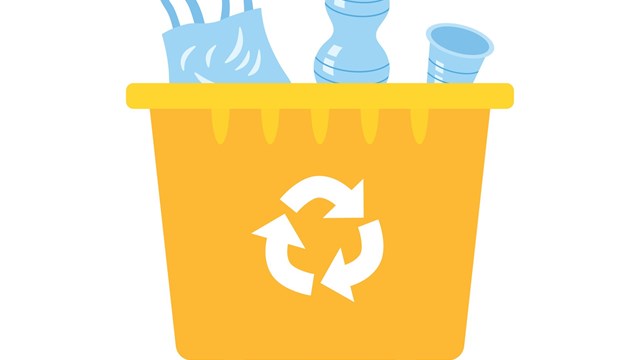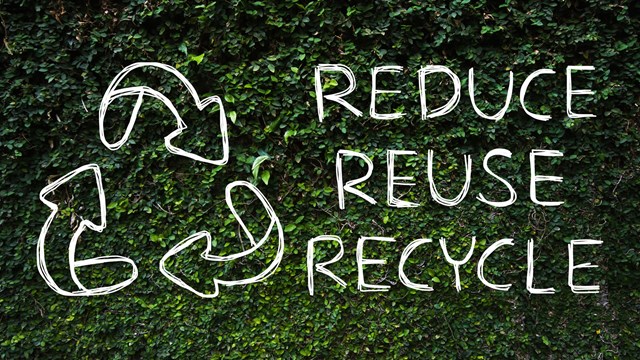Where would we be without our personal computers? From news to e-mail to online shopping and financial management, they’ve brought so much convenience to our lives. Along with their associate devices such as printers and monitors, PCs have revolutionized how many of us do our work and run our lives.
There’s a downside to all the convenience and speed, however. What many people don’t know is that many computers—particularly older ones—contain lead, mercury, cadmium, beryllium, and brominated fire retardants—all of which are harmful substances. And it’s not only computers, it’s anything with a circuit board—DVD players, VCRs, cell phones, fax machines and other devices. Older monitors are a particular problem because they each contain four to eight pounds of lead—installed to protect users from radiation from the CRT tube.
For years, corporations have been calling recycling firms to take away their old computers and other electronic devices. It’s a law that these commercial enterprises have to obey. Now, however, residential buildings—co-ops, condos, and rentals—are getting into the act. An 11-year-old non-profit organization that has been performing computer collection and recycling services for such major-league firms as the Federal Reserve Bank, the IRS, Deutsche Bank, NBC, Con Edison and JPMorgan Chase has been turning its attention to residential developments in the New York area.
The company is Bronx-based Per Scholas (which means “for schools,” because of the company’s training programs for computer technicians). In April 2006, the company started its Community Computer Collection Project. So far, it has scheduled or held collection/recycling events at buildings and developments throughout the city. Among them are the Amalgamated Houses in the Bronx, Penn South Mutual Redevelopment Houses in Chelsea; Stuyvesant Town and Peter Cooper Village; Morningside Gardens in Morningside Heights; the environmentally-conscious Solaire tower near Battery Park, and others. Per Scholas also has held collection events at the New School and Columbia University.
An Educated Consumer
Why recycle computers? According to Michael Rieser, who the heads up Per Scholas’s Community Computer Collection Project, while only 10 percent of the volume of the waste in landfills today comes from old computers and other electronic waste, as much as 70 percent of landfill toxicity can be linked to them.
As if toxic effects on the environment weren’t compelling enough, there are other reasons to recycle your old computers. One is data security. Some people don’t even bother to delete their old files before they take their old computer downstairs to the trash area.
However, “When you throw your computer in the trash, it does not remove your files from the drive,” says Rieser, who once was the president of his own co-op board in Park Slope. And even if you do delete them, “your files are not erased—they’re just indexed.” Thus, if the wrong type of computer savant gets his or her hands on your old computer, you could be in big trouble.
Finally, those co-op and condo residents who donate their old hardware, and those developments that sponsor Per Scholas “events,” are doing a good deed socially. Per Scholas takes the computers that can be salvaged, refurbishes them, then makes them available to low-income New Yorkers for a mere $195. Refurbished PCs include a Pentium III processor, Windows Professional, CD-ROM and floppy drives, an Ethernet card, a color monitor, free anti-virus software, free Word, Excel and other software, a free one-year warranty, lifetime tech support and more. Items like an inkjet printer and speakers are more—but not much more.
According to the organization’s website, the bulk of the buyers are residents of public housing, single-parent families, and others who might otherwise be shut out of the computing world for economic reasons.
Non-salvageable computers and components meet a different fate. Any devices Per Scholas collects that are so obsolete that they’re beyond recycling—such as a 286 computer, for example—are taken apart and separated at the Bronx plant into different materials, including as glass, plastic and others.
Those materials that can be sold on the open market are bought by industrial plants. However, says Rieser, “Most of our byproducts have a negligible value, and we have to pay someone to take them away.”
At the same time, the organization helps educate and train computer technicians, many of them from disadvantaged areas themselves, by giving them valuable experience. Tuition and materials are free, and nearly 80 percent of all graduates are able to find employment.
Per Scholas has many “heavy hitters” underwriting its efforts, such as Con Ed, American Express, the Durst Organization, Gannett, and the Overbrook Foundation (which funds the Computer Collection Project). It also expanded its operations to Miami in 2002.
Per Scholas on the Road
This past July, Per Scholas held a “collection event” at Penn South—the non-profit’s first such event at a residential development. Because Penn South is fairly large, the Per Scholas truck parked in the morning on West 24th Street, on the south side of the development; then, in the afternoon, on the Chelsea development’s north side, on West 28th Street.
Because the event had been widely publicized, co-op residents began to bring their unwanted hardware within minutes: older computers and printers, cassette players, older cell phones and telephones, a stenography machine, a plastic clock, VCRs, radios.
Quite a few Smith-Corona electronic typewriters, which competed with PCs in the early and mid-1990s but were soon overshadowed by them, made their way to the recycling bins. A few IBM Selectric typewriters, which preceded the Smith-Coronas and which were the very latest thing in the “How To Succeed in Business Without Really Trying” era, also were disposed of.
At the same time, Rieser and other Per Scholas staffers sat at a nearby table, taking people’s names and handing out literature about the organization. Rieser believes that Penn South was a good location for what he termed the “ground-breaking” event because of the co-op’s history of being involved in social justice and socially responsible causes, and its historic ties to the labor movement. Penn South recently announced several initiatives to further efforts to make the cooperative a “green” community.
People gave different reasons for bringing in their computers and other equipment. Resident Ed Haber brought in his aunt’s old computer; she finally had gotten a new one, but he hadn’t gotten around to disposing of the old one until the Per Scholas event.
A female resident, who didn’t wish to give her name, brought in a computer tower, monitor and Epson printer, saying, “I had it sitting under my table after I got my new computer.” Penn South maintenance staff helped carry old machines to the truck for residents who were unable to leave their apartments.
Some of the older residents said they’d had their old equipment for 10 years or so before they replaced it: younger computer users, who replace their PCs every three or four years, might well wonder how they’re able to do it.
A week after visiting Penn South, Per Scholas went across town to the Stuyvesant Town/Peter Cooper Village rental development, owned by Metropolitan Life. “They were in Stuyvesant Oval collecting unwanted computer equipment, and they did very well,” says Richard Shea, a spokesman for the development.
According to Shea, “Ninety-one people went out and brought equipment in—53 computers, 23 laptops, 49 monitors, 40 printers. Not bad for a day’s take.”
The Morningside Gardens co-op is also recycling electronic equipment in partnership with Per Scholas, but in a different way. Doug Sugarman, the building’s interim general manager, said that co-op invited the organization in at the request of one of its shareholders. Morningside Gardens is now warehousing used, unwanted electronic equipment, and when it gets enough items, it calls Per Scholas to truck the items away. As residents throw away trash, the co-op’s maintenance staff separates out the items and keeps them together.
Back at Penn South, Brendan Keany, the development’s general manager, summed up the general consensus by calling Per Scholas’ community recycling service “an excellent program,” adding that a surprisingly high number of shareholders responded to the recycling call. He also praised the organization for making its recycled computers available to low-income New Yorkers, and added, “I can’t sing their praises highly enough.”
For more information on Per Scholas’s programs and collection events, call 800-877-4068 or 718-991-8400, write to Per Scholas at 1231 Lafayette Avenue, Bronx, NY 10474, or visit the group’s website at www.perscholas.org.
Raanan Geberer is a freelance writer living in New York City.






2 Comments
Leave a Comment